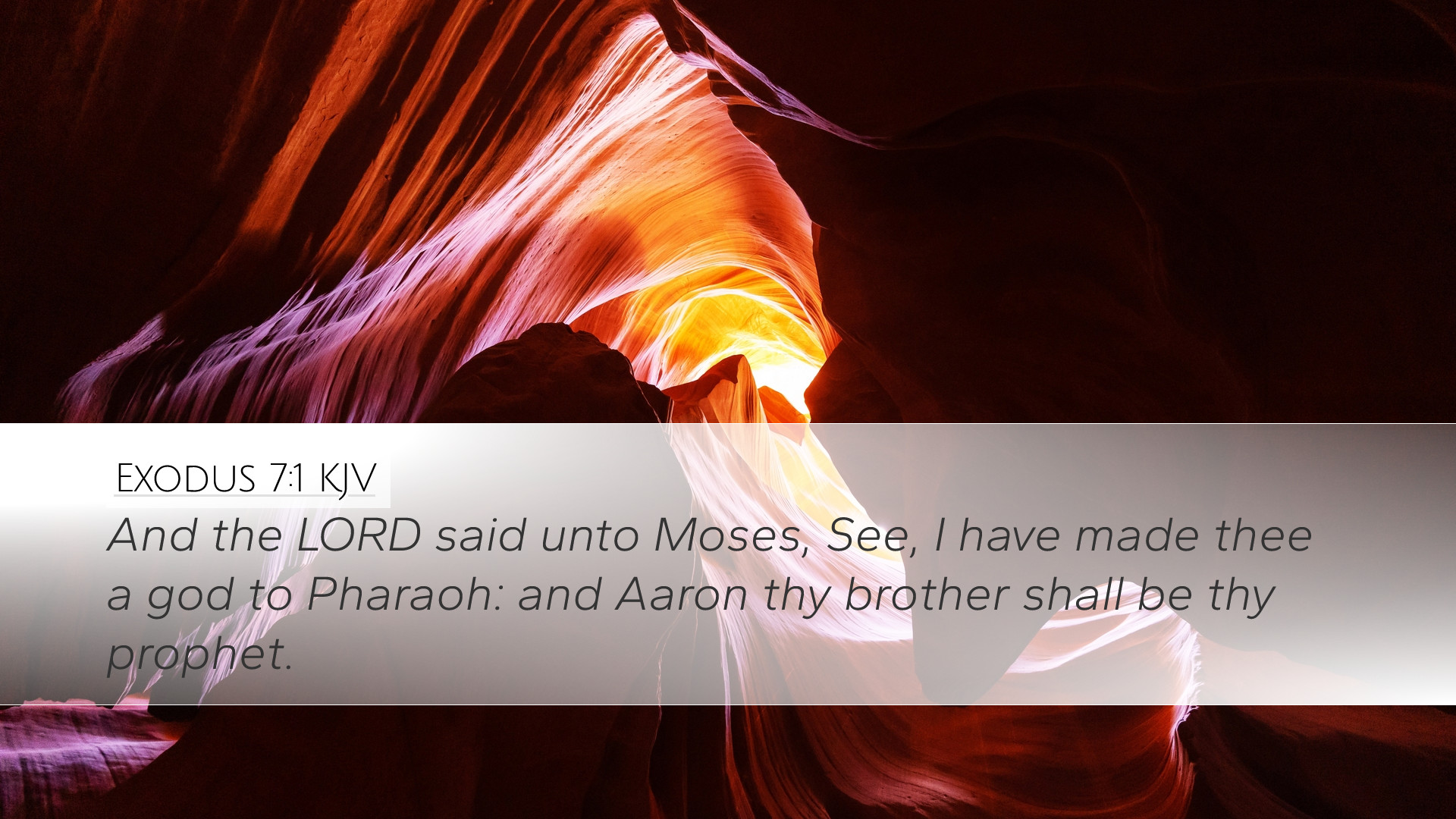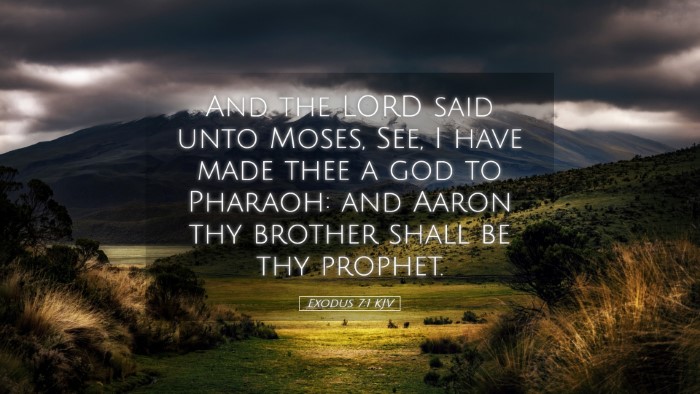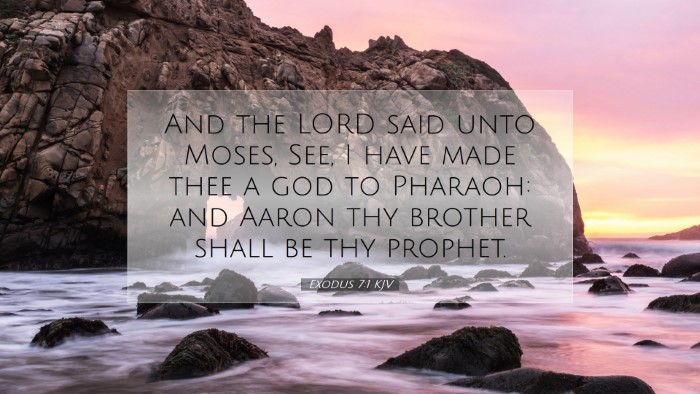Commentary on Exodus 7:1
Exodus 7:1 states: "And the Lord said unto Moses, See, I have made thee a god to Pharaoh: and Aaron thy brother shall be thy prophet." This verse marks a pivotal point in the narrative of the Exodus where God continues to prepare Moses for his mission to liberate the Israelites from Egyptian bondage. Below is a comprehensive commentary synthesized from several public domain sources.
Understanding the Divine Commission
Moses had already expressed doubts regarding his ability to lead the Israelites out of Egypt. God’s affirmation in this verse underscores His sovereignty and the divine empowerment that Moses would receive. As Matthew Henry notes, the assertion that Moses would be "a god to Pharaoh" emphasizes that Moses would be endowed with authority and divine backing, effectively establishing a contrast between divine power and Pharaoh’s earthly authority.
The Nature of Prophethood
In the latter part of this verse, it is stated that “Aaron thy brother shall be thy prophet.” Albert Barnes stresses that this relationship signifies a partnership in ministry. Aaron was to communicate God’s will to Pharaoh, acting as a mouthpiece for Moses, similar to the role of a prophet relaying messages from God to the people or rulers.
The Symbolism of Godship
The declaration of Moses as a “god” to Pharaoh invites a rich theological exploration. Adam Clarke suggests this metaphor indicates an elevation of Moses’ status through God’s appointed mission, instilling fear and respect in Pharaoh, the most powerful human authority at that time. This reflects the broader biblical principle that God often operates through human vessels to accomplish His will.
Political and Cultural Context
In the cultural context of ancient Egypt, Pharaoh was considered a god himself, and thus, God’s designation of Moses in a similar capacity serves to challenge and delegitimize Pharaoh’s claims. The commentaries highlight that this was not merely a personal empowerment but rather a theological statement against the idolatry and false worship of Egypt.
Preparation for Confrontation
The context of this verse finds Moses and Aaron on the precipice of a monumental confrontation with Pharaoh—a direct challenge to the oppressive regime. Matthew Henry observes that this moment encapsulates both a liberation mission and a prophetic declaration that God has authority over all nations and rulers.
The Leadership Role of Moses
This passage is indicative of the responsibilities that accompany divine leadership. Moses’ role was not only administrative but required deep spiritual and moral integrity. According to Albert Barnes, it was essential for Moses to embrace this identity fully to navigate the trials and tribulations awaiting ahead. He was to act with the credibility of divine commission.
Lessons for Modern Leadership
The implications of Exodus 7:1 resonate with contemporary leaders. The call to lead is often accompanied by feelings of inadequacy, as expressed by Moses himself. Adam Clarke reminds us that divine calling is coupled with divine empowerment. This principle encourages leaders today to rely on God's strength rather than their capabilities.
Faith in Action
This proclamation by God imbues a sense of urgency to act. Just as Moses was tasked with delivering a nation, leaders in faith communities must respond actively to their calling. The dynamic between Moses and Aaron illustrates the importance of companionship in ministry, a theme stressed by both Matthew Henry and Albert Barnes.
Concluding Thoughts
Exodus 7:1 serves as both a commissioning statement and a profound theological assertion about God’s sovereignty over the powers of the world. The call of Moses speaks to leaders and believers today that in their service, they too carry the mantle of God's authority.
As we reflect on this verse, may we be encouraged to accept our roles in the divine plan, understanding that our fears and inadequacies can be divinely met with strength and guidance from God. The roles of Moses and Aaron inspire a collaborative spirit in ministry, affirming the belief that God equips those He calls.


